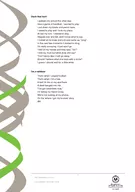PDF-Womens Childrens Hospital
Author : delcy | Published Date : 2022-10-26
Hives Urticaria Hives are a very itchy rash caused by an allergic reaction Hives look like raised pink spots with pale centres on the skin The spots range from
Presentation Embed Code
Download Presentation
Download Presentation The PPT/PDF document "Womens Childrens Hospital" is the property of its rightful owner. Permission is granted to download and print the materials on this website for personal, non-commercial use only, and to display it on your personal computer provided you do not modify the materials and that you retain all copyright notices contained in the materials. By downloading content from our website, you accept the terms of this agreement.
Womens Childrens Hospital: Transcript
Download Rules Of Document
"Womens Childrens Hospital"The content belongs to its owner. You may download and print it for personal use, without modification, and keep all copyright notices. By downloading, you agree to these terms.
Related Documents














